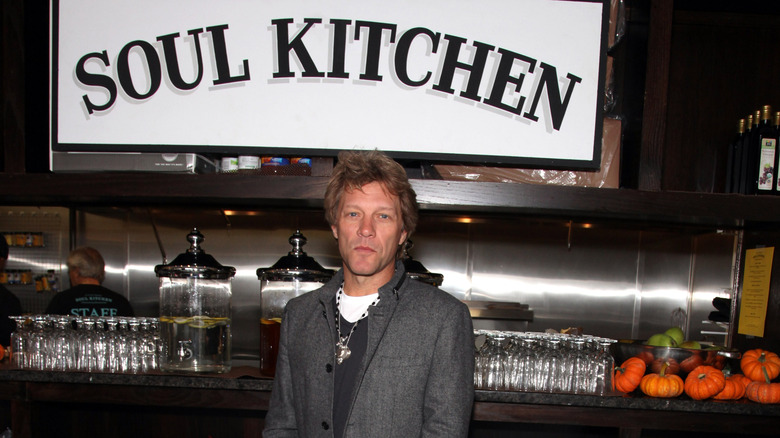
Copyright Lawrey/Shutterstock
Most people flip open a restaurant menu and quickly scan for two things: the tastiest dish and the cost. However, in one New Jersey restaurant, that second part reads blank. Imagine sitting down at a cozy table and reading about a hearty chicken dinner or a farm-fresh salad, then realizing there are no set price points to be found. It sounds like a gimmick, but it isn't.
That's because this isn't your typical sit-down place — it's JBJ Soul Kitchen, the brainchild of rock legend Jon Bon Jovi. Backed by his non-profit, the Jon Bon Jovi Soul Foundation, the restaurant operates on a unique pay-it-forward model. Instead of paying a fixed price, guests are asked to contribute a donation. Or, if they're unable to pay, patrons can volunteer their time to cover the cost of their meal. The idea is simple: dignity for all, and a table where everyone belongs. Bon Jovi explained that the mission isn't just about food, it's about creating community and hope.
The first Soul Kitchen opened in Red Bank, New Jersey, in 2011. The eatery's impact was immediate, and in the true essence of soul food, bringing people together and nourishing them was the focus. Soon after, another location opened in Toms River. Since then, Soul Kitchen has served over 200,000 meals. A report from the New York Post indicated that Soul Kitchen is widely considered the No. 1 celebrity-owned restaurant in the U.S., not because of flashy décor or a famous chef, but because of the generosity baked right into its mission.
How the Pay-It-Forward Model Works

Paul Zimmerman/Getty Images
How does a restaurant with no prices keep the lights on? At Soul Kitchen, paying customers are encouraged to donate a suggested minimum of $25, if they can afford to do so, or any amount they are willing to offer. This helps cover costs for patrons facing food insecurity. At the pop-up Soul Kitchen on the Rutgers University campus, students and faculty members are able to donate funds from their school-issued meal plans. Volunteering opportunities are available for hungry guests who may be short on cash.
The meals themselves are far from the soup kitchen stereotype. Menus rotate regularly and are built around fresh, locally-sourced ingredients. Many of the three-course meals are hearty, comfort-food recipes with a gourmet twist, like butter chicken meatballs with rice, pineapple pork loin with veggies, and the chef's choice of dessert or a fresh fruit plate. Whether you donate $25 or roll up your sleeves to help, you'll sit down to something truly delicious.
Over the years, Soul Kitchen and the Jon Bon Jovi Soul Foundation have marked several milestones. The nonprofit is branching out into housing and community development. The restaurant remains one of its most visible successes. Today, JBJ Soul Kitchen is more than a place to eat — it's a shining example of how food can unite people across backgrounds, incomes, and circumstances. And, let's face it, having a rock star like Bon Jovi behind the apron is proof that kindness can be just as legendary as a chart-topping hit.



